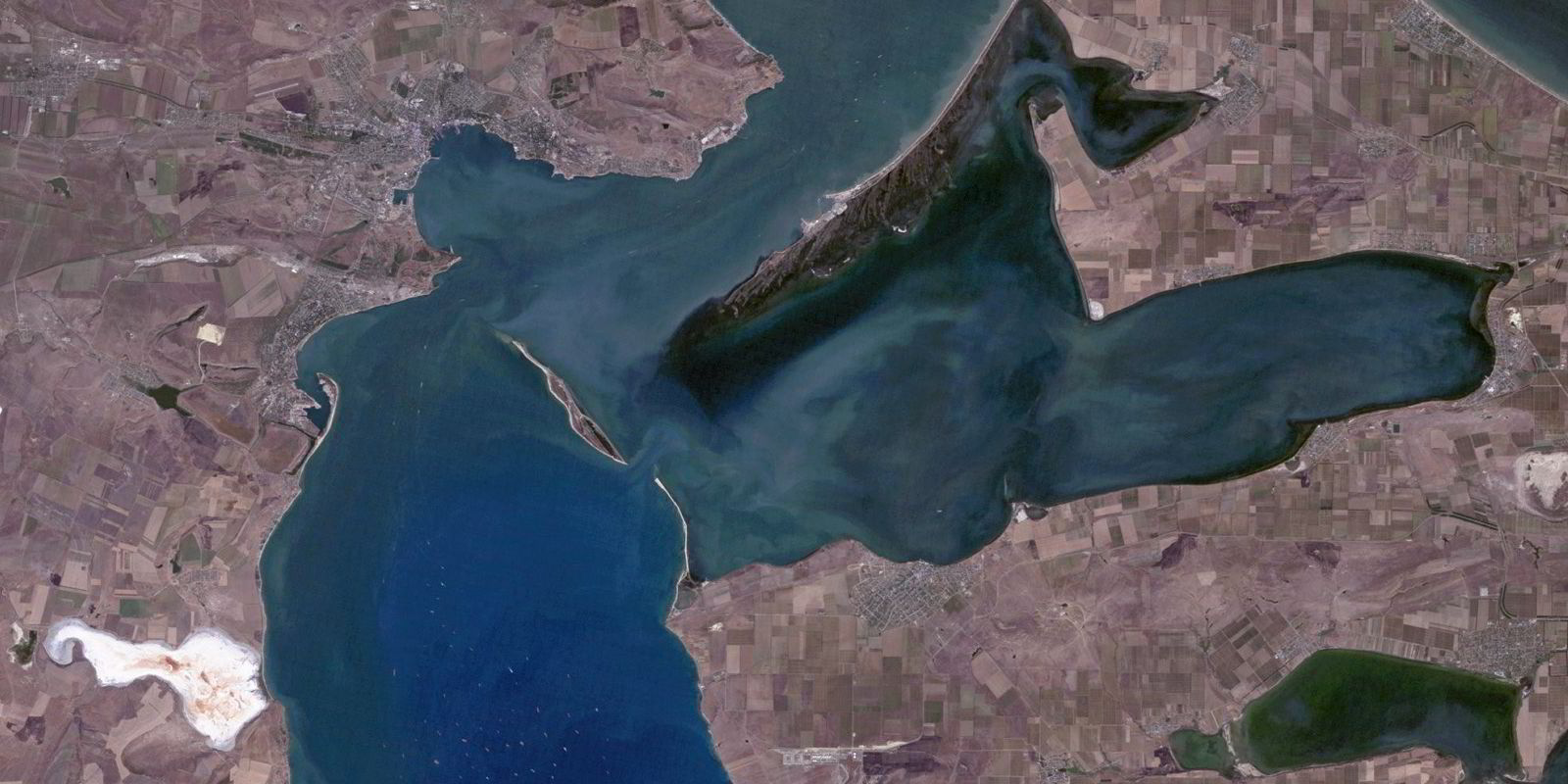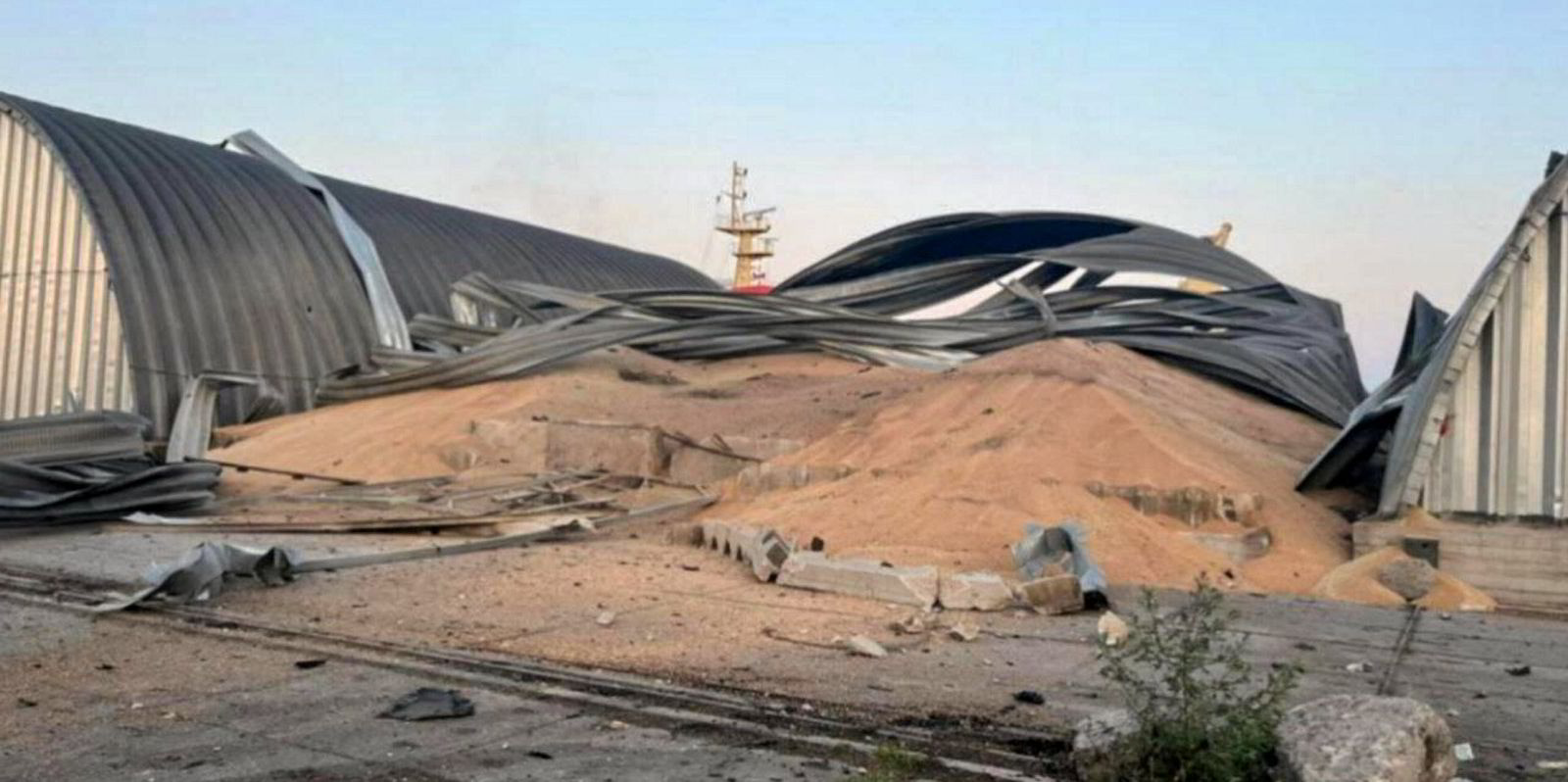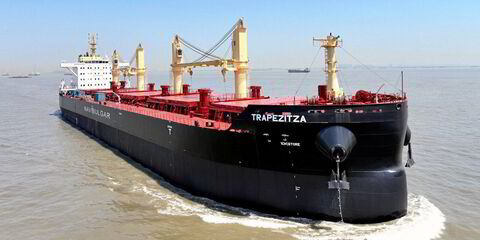Vessels passing through the Kerch Strait that links Russian-controlled waters in the Black Sea and the Azov Sea will be henceforth subject to extra checks by the country’s secret police agents.
The measure was announced on Monday on the website of the Federal Security Service (FSB) in Moscow, “to prevent terrorist and sabotage actions and ensure the safety of navigation”.
Russia’s secret police said it was taking the step after discovering on 22 July traces of explosives on board a cargo ship that was ballasting towards Rostov-on-Don to load grains.
According to the FSB, “traces of dinitrotoluene and tetryl explosives” were found in the unidentified vessel’s hold.
“Signs of third-party interference in the structural parts of the bulk carrier were also revealed,” the secret police added.
Russian authorities said they became even more suspicious of the ship because it had called in May at Ukraine’s Danube port of Kiliya and then in July it changed its name and Ukrainian crew while at the Turkish port of Tuzla.
“These circumstances may indicate the possibility of using a foreign civilian ship to deliver explosives to the territory of Ukraine,” the FSB added.
Russian authorities stopped the vessel from crossing the Kerch and then sent it away from Russian waters.
Russian officials and commentators have long accused Ukraine of using cargo ships to carry explosives or helping organise drone attacks against Russian targets in the Black Sea. However, they have not supplied concrete evidence to back up their claims.
Shipping obstacles mount
The FSB announcement is the latest in a string of developments highlighting the rising obstacles to commercial shipping in the Black Sea.
Ship traffic to the Ukrainian ports of Odesa and Chornomorsk has stopped after Russia quit the UN-brokered Black Sea Grain Initiative (BSGI) on 17 July. The day after that, Moscow formally warned owners and flag states that it considered any commercial ship heading towards Ukrainian ports as a potential military target.
Danube river trade on the Ukrainian-Romanian border seemed initially exempted from that threat. Early on 24 July, however, Russian drones hit for the first time onshore targets at Ukraine’s Danube ports of Izmail and Reni.
Ship traffic on the river, however, does not seem to have been interrupted.
Ukraine, which was invaded by Russia last year, has itself been busy issuing threats to vessels.
On 20 July, the government in Kyiv announced a counter-blockade, threatening to attack ships approaching Russia’s Black Sea ports.
Three days before, sea traffic through the Kerch Strait was disrupted after Ukraine damaged a car and rail bridge there.
The Kerch Strait is a key waterway linking the Black Sea with grain ports both in Russia proper and the Russian-annexed terminals of Mariupol and Berdyansk by the Sea of Azov.
AIS data showed no ship traffic there since the Kerch Bridge attacks. The FSB statement on Monday, however, clearly suggests that traffic had resumed by 22 July at the latest, when the ship with the alleged explosives traces was discovered and sent back.
The Kerch ferry service between Russia proper and Crimea is already known to have resumed operations, just a few hours after the Kerch Bridge attack last week.
A large part of Russian grain exports goes through the Kerch Strait.
According to official figures, transshipment of dry cargo exports from the Azov Sea and the Black Sea rose at a steep pace of 33% last year to 71.8m tonnes.
Russia seeks to send even more grain through the region, to replace Ukrainian exports that Moscow itself has thwarted by quitting the BSGI.





